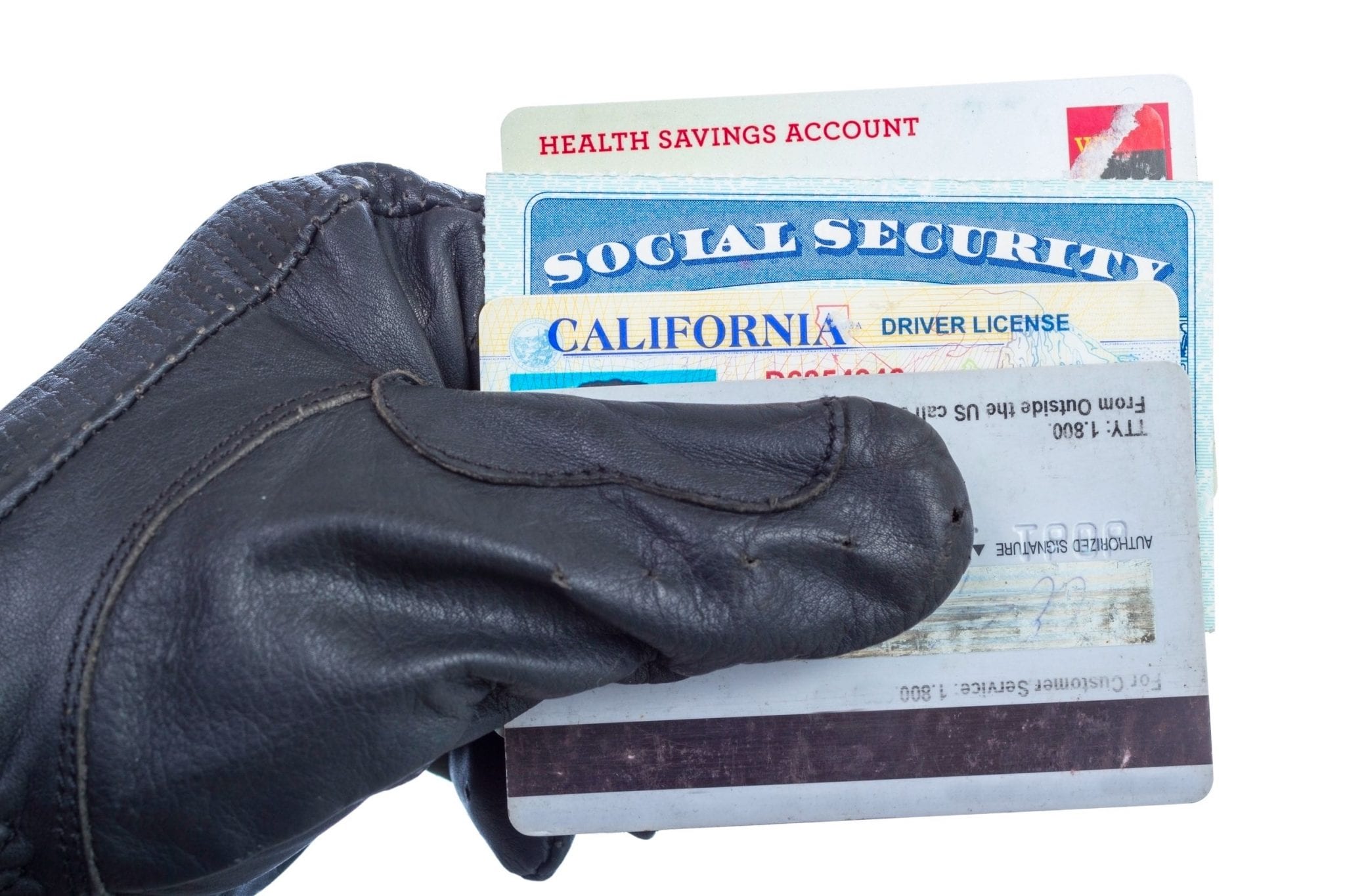
In Texas, the crime of identity theft occurs when a defendant illegally uses the identity of another person to obtain services, money, goods, or anything else of value.
This crime is punishable by severe criminal consequences, as well as the long-term effects of being a convicted felon. To help you understand them, we’ve put together a guide covering how Texas defines identity theft, and the penalties you could face if convicted.
There are two types of identity theft recognized under Texas law and are included in the Texas general theft statute. Identity theft is also prosecuted federally in some cases.
Texas Law on Fraudulent Use or Possession of Identifying Information
The defendant commits the offense of fraudulent use or possession of identifying information by using, possessing or transferring the identifying information of another without that person’s consent.
Identity theft charges can accompany the act of taking or using any of another person’s identifying information including:
- Name
- Fingerprints
- Social Security Number
- Driver’s License
- Date of birth
- Bank routing or account number
Depending on the number of items stolen or used, this form of identity theft can be a State Jail felony, or a First, Second or Third-degree felony.
Less than five items is a state jail felony can land you 6 mos-2 years in prison and/or a $10,000 fine while five to nine items classify as a third-degree felony which can more than quadruple your prison time.
Between ten and 49 pieces of information will bump you up to a second-degree felony charge which can land you twenty years inside, but the maximum fine stays at $10,000.
Any more than 49 items can plan on facing first-degree felony charges. If convicted, you may face up to 99 years behind bars and still have to pay that fine of $10k.
The unauthorized recording of information on the credit card or bank card of another without consent or lawful authorization is also considered identity theft.
Charges often accompanying this one include “recording financial site information” which encompasses card or account numbers, routing numbers, expiration dates or card verification codes.
Means commonly used to collect this data are a video camera, photograph, handwriting the information or reading the numbers onto a voice recorder.
Depending on the circumstances of the offense, this type of identity theft can be a Class A or Class B misdemeanor:
- Obtaining information is a Class B misdemeanor, punishable by up to 180 days in county jail and/or a fine up to $2,000
- Transferring information to another is a Class A misdemeanor, punishable by up to one year in county jail and/or a fine up to $4,000
Defending Yourself Against Texas Identity Theft Charges

Identity theft charges can land you in quite a bit of hot water. Still, facing charges does not equate to getting convicted. Depending on the circumstances of your case, a number of defense strategies may help clear your name, including:
- Lack of intent to harm or defraud another individual
- A mistake of fact, meaning that the defendant did not commit the offense in question
- Age; minors receive a less-severe penalty under Texas state law
That said, the best defense for identity theft charges is the one that works for you, and fits the specifics of your case.
About the Author:
After getting his Juris Doctor from the University of Houston Law Center, Jeff Hampton began practicing criminal law in Texas in 2005. Before becoming a defense attorney, he worked as a prosecutor for the Tarrant County District Attorney’s Office – experience he uses to anticipate and cast doubt on the arguments that will be used against his clients. Over the course of his career, he has helped countless Texans protect their rights and get the best possible outcome in their criminal cases. His skill has earned him recognition from the National Trial Lawyers (Top 100 Trial Lawyers) and Avvo (Top Attorney in Criminal Defense, Top Attorney in DUI & DWI, 10/10 Superb Rating), and he is Lead Counsel rated.

